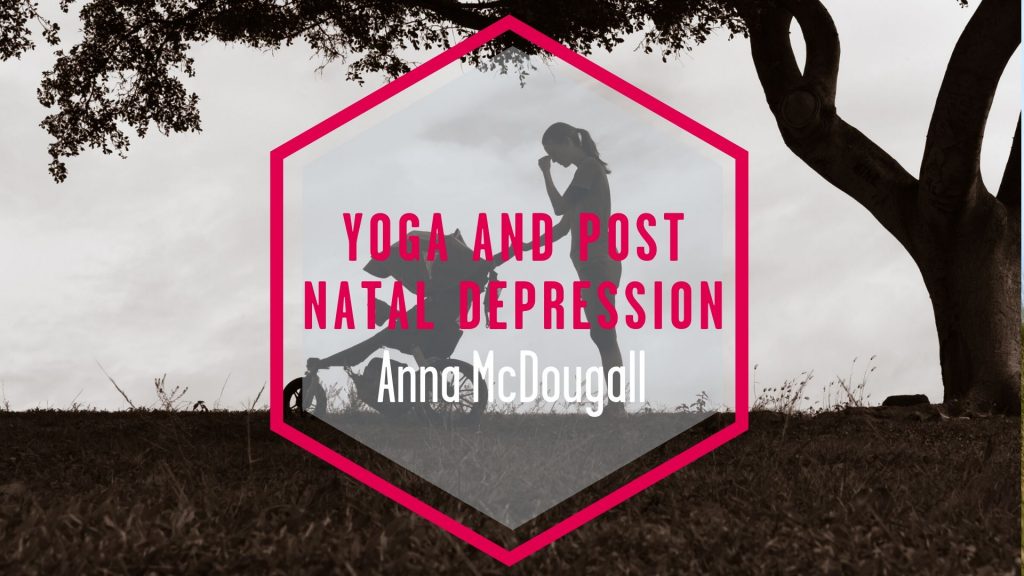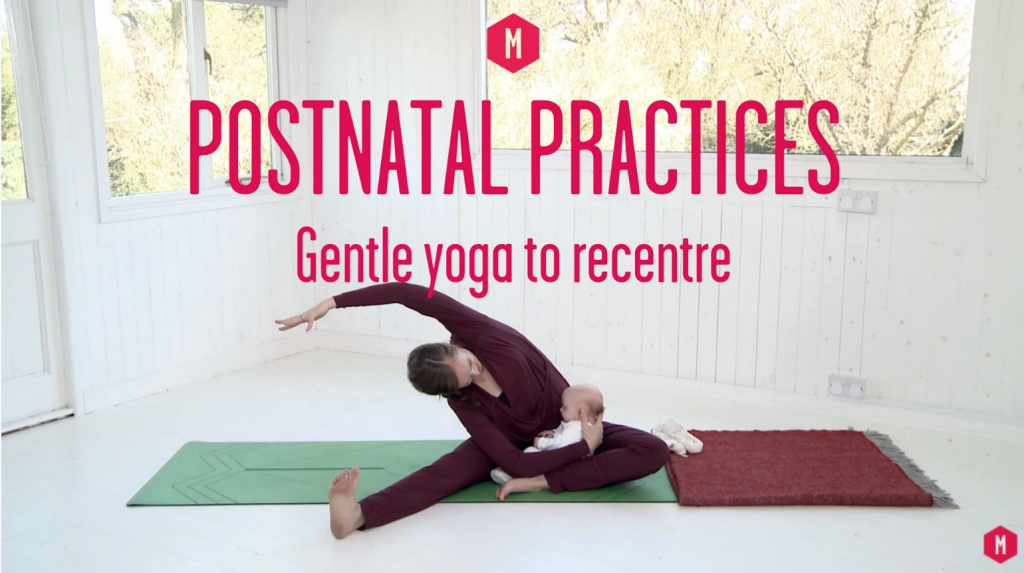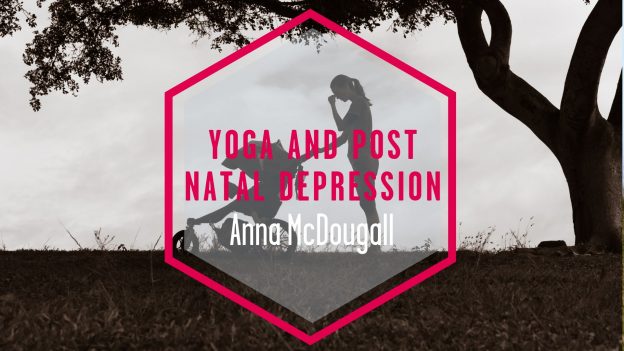
In this article, obstetrician and yoga teacher Anna McDougall explores yoga’s role in Postnatal Depression (PND). Anna believes yoga co used as a preventative measure and also as a management tool.
In the UK around 10% af women practice yoga in pregnancy. This can be as a continuation of a regular practice or as a new pursuit. For many women pregnancy and the postnatal period can be an exciting and happy time. Anxiety and depression, however, are common with one in ten women experiencing some form of Postnatal depression.
What is Post Natal Depression?
PND, like depression experienced at other times, is a serious illness. PND negatively affects how a person feels, thinks and acts. It is not the same as ‘baby blues’ which is a period of hormonal adjustment in the first week after birth. Symptoms of PND can include not just low mood but feelings of anxiety, inadequacy, guilt and negative feelings towards their baby. In addition to this women with PND find it difficult to bond with their baby. In severe cases PND results in suicidal thoughts. Shockingly, the lead cause of direct maternal death in the UK in the first year after giving birth is suicide. PND can start within the first few months following delivery or anytime in the first year. Most people expect this to be a happy time.
Risk factors include a history of depression or anxiety [especially if experienced in pregnancy], ambivalence towards the pregnancy, social isolation and birth trauma. Mild to moderate PND can improve within weeks with counseling and support. More severe forms may require antidepressants and or admission to a specialist mother-and-baby psychiatric unit. PND affects not only the mother’s ability to care for herself and her baby, but if untreated may negatively impact the mother-baby relationship and the later social and cognitive development of the child.
Bonding with baby
In both pregnancy and postnatal yoga classes one of the key aspects is bonding with the baby. Yoga is a ‘practice’ which involves tuning into your own body. Pregnancy yoga harnesses this to develop deep connections with the baby in utero through directed breathing. Physical postures can involve touching the swelling belly and positive meditations regarding pregnancy, labour and parenthood. These practices help to alleviate anxiety and also ambivalence towards the pregnancy and can thus prevent and help manage PND. This can in turn develop the mother-baby bond. Postnatal practices promote a loving interaction through meaningful physical contact and may even incorporate the baby into modified asanas that facilitate holding or rocking. Development of this loving bond is vital in the postnatal period especially if this has not been established immediately postpartum for reasons such as birth trauma and in those suffering with PND.
Yoga mind
Yoga can be defined as “the stilling of the fluctuations of the mind”. Few phrases summarise more articulately its calming and focusing effect. Anxiety in pregnancy is a risk factor not just for PND but is also associated with pre-term birth, low birthweight and adverse effects on neurodevelopmental outcomes of the child. The therapeutic effects of yoga have been demonstrated in numerous studies including a recent robust randomised control trial in which clinically and significantly reductions in depression severity were demonstrated in adults with moderate depression participating in a 8-week hatha yoga intervention.
Yoga in pregnancy significantly reduces stress and anxiety. One study carried out in 2014 showed that antenatal women undergoing an 8 week yoga course had a 14% reduction in depression symptoms.
This effect may be brought about by the practices of self-compassion, acceptance and mindfulness. These can aid self-esteem and support recovery from depression.
Yoga body
It is undisputed that physical exercise is a vital component to a healthy lifestyle. “Healthy body; healthy mind” is a saying we have all heard a million times. Numerous studies have shown that exercise alone or in combination with other therapies can be as effective in treating mild to moderate depression as antidepressants. There is a growing body of evidence for the specific use of yoga in this context.
Yoga helps our nervous system to relax but it also supports the release of our feel-good hormones. Physical exertion improves both cognitive function and sleep quality. These can become disturbed in PND and other depressive disorders. Most new mothers are juggling the needs of the baby and exhaustion. Mother and baby yoga classes can provide an accessible and feasible way to exercise.
The yoga community
A pregnancy yoga class provides a unique opportunity to build new relationships. Attendees are likely to have similar due dates and live within a similar area. The knowledge that another woman is going through a similar time in her life can be a starting point for conversation and friendship. At its core yoga is a peaceful discipline that promotes compassion towards oneself and others. Unlike other ‘exercise’ classes many find something deeper than a one-dimensional physical workoutand this shared mind-body experience can provide fertile ground for the development of meaningful friendships.
Postnatal ‘mum and baby’ classes can provide a welcoming space for a gentle yoga practice tailored to the postpartum whilst also accommodating babies. Such environments can provide a nurturing space for new mothers to have social interaction at a time when they feel isolated and exhausted. As social isolation is both a known risk factor for and consequence of PND the potential community benefits of a yoga practice are clear.
Postnatal yoga and its role
In this article I have described how yoga can support mothers to connect with their babies in a meaningful way. Yoga also supports the mother to set aside time for themselves and to exchange experiences with other mothers. This may offer a way to prevent and manage PND. In my opinion this incredible practice is wildly underutilized in the context of this incredibly common and socially devastating condition.
If you are a new mum, why don’t you try one of MFML’s postnatal yoga classes?






There are so many women that how to go through postnatal depression and knowing that yoga can help you to feel better, is a wonderful thing. Thank you